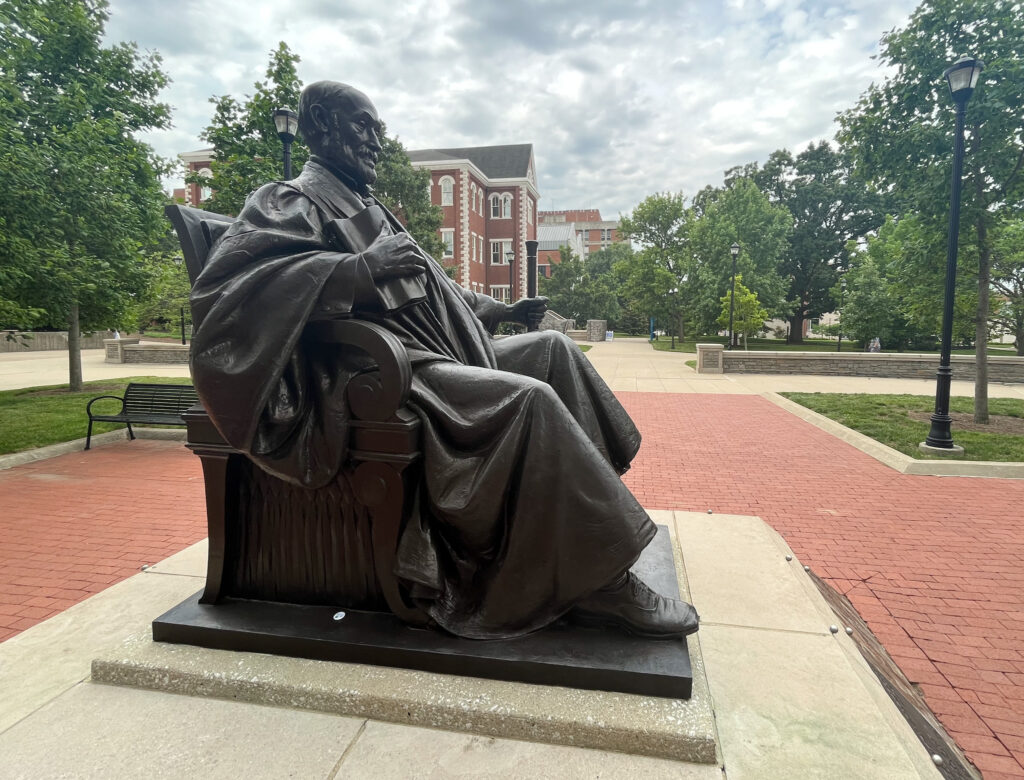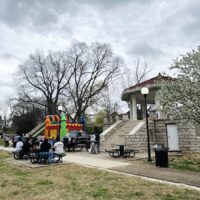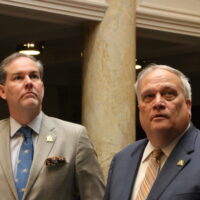Lately, national attention on Kentucky news seems to focus on the sensational and the shocking.
The national media reported on the discovery — a day after authorities called off a massive law enforcement search — of the decomposing body of the person believed to be the I-75 shooter by a colorful Casey County couple with genealogical ties to the legendary Hatfields and McCoys.

National reports of the murder of a Letcher County judge by the county sheriff in the judge’s chambers quickly surfaced in media headlines.
It is less common for a national news service covering academia to shine a light into the dim administrative recesses of Kentucky’s public universities.
But as national headlines heralded the recovery of the shooter’s body — not far from the site where he allegedly committed his crimes — and announced the courthouse murder, The Chronicle of Higher Education redirected national attention to a controversy at Kentucky’s flagship university that the university would have happily preferred, no doubt, to remain local.
The ironies in The Chronicle’s story — “After a No-Confidence Vote at the U. of Kentucky, a Tussle Over Ballots Gets Messy” — are rich.
Administrators at the University of Kentucky — an institution whose open records and open meetings performance has been tested and regularly assigned failing marks — lectured members of the now dismantled University Senate, reassigned staff, and threatened legal action, based on the Senate’s records-keeping and records-management practices — practices on which the administration itself had offered bad legal advice in the past.
Indeed, it is the recording and maintenance of the former University Senate’s votes that is at the heart of the controversy on which The Chronicle focuses. In October, 2021, a UK attorney advised that “it is compliant with the Open Meetings law for the Senate Council/Senate to merely record in the minutes whether or not a motion ‘passed,’” reaffirming this at a later meeting. A 2018 open records request for a copy of the university attorney’s legal analysis yielded a copy of a federal court opinion that offered no support for his position and nothing more.
To be clear, during its existence, the University Senate was considered a public agency for open meetings purposes. Kentucky’s Open Meetings Act requires public agencies to keep minutes containing accurate records of votes and actions of every public meeting.
Unless a vote is unanimous, the minutes must reflect how each public agency member voted. Minutes of meetings are to be maintained in “College/University Archives (or designated institutional repository)” for permanent retention.
Suffice it to say that the University Senate met these requirements. In spite of past advice from the university’s lawyers that minutes of University Senate votes were sufficient if they reflected that the measure upon which the vote was taken was “approved” or “disapproved,” the Senate has, for years, properly maintained Senate votes — corresponding to the identity of the senator casting that vote — and archived them in a secure location.
This, however, is where a unique tension exists.
Elected representatives of the University Senate, as it was previously known, acted as public servants accountable to their faculty colleague “constituents.” But they also occupied the unique status — in a non-open meetings context — of university employees.
Access to their individual voting records in certain scenarios — say, for example, a “no confidence” vote on the University president — threatened to expose them to workplace retaliation. The Chronicle reports that some faculty fear the administration will, indeed, retaliate based on their votes — a suggestion the university, of course, rejects and at which it takes great umbrage.
Perhaps this is why, as The Chronicle of Higher Education reports, the American Association of University Professors “has no policy on how no-confidence votes should be conducted or reported,” but “affirm[s] professors’ right to protected intramural speech.”
“The idea is, senators are voting their conscience. They’re voting for what their colleagues would hope they would vote for, and they should be able to do so in a way that they don’t feel like someone’s going to come for them when they make their voice known,” said one member of UK’s AAUP chapter.
As noted, those University Senate’s actions were recorded in its meeting minutes. Votes were recorded and reflected how each senator voted. They were archived in a location that limited access unless requested — whether by Uk administrators, a curious professor, The Kentucky Kernel, a concerned citizen, or anyone else — through the Open Records Act. Upon submission of such a request — triggering statutory duties and a public process that culminates in a published Kentucky attorney general’s open records decision — those individualized University Senate votes were and are publicly accessible.
In the meantime, the votes are archived and secured (mostly) from surreptitious access and the possibility (even if remote) of retaliation.
But this unsettled state of affairs teaches me an invaluable lesson, albeit a lesson I learned late in the open government game. A “one size fits all” approach to open government law can yield unexpected and unwelcome outcomes for public servants wrestling with the tension created by statutory duty, on the one hand, and fear of retaliation in the workplace, on the other.
I, for one, am satisfied with how the University Senate resolved this tension to ensure compliance with open records, open meetings, and records management laws and, at the same time, preserve its elected senators’ right — to the extent legally possible — to vote their consciences.
More importantly, this unsettled state of affairs teaches us all that “the faculty-administration relationship at the [University of Kentucky,] since the decision was made to reform its shared-governance model,” continues to “deteriorate” with no real end in sight.
The Chronicle of Higher Education’s reporting ensures that this once local “tussle” is now nationally known.

Amye Bensenhaver spent 25 years as an assistant attorney general in Frankfort and is an expert on open records and open meetings. Now out of state government, she writes about these issues. Bensenhaver is a co-founder of the Kentucky Open Government Coalition with Jennifer P. Brown, who is the editor of Hoptown Chronicle.



